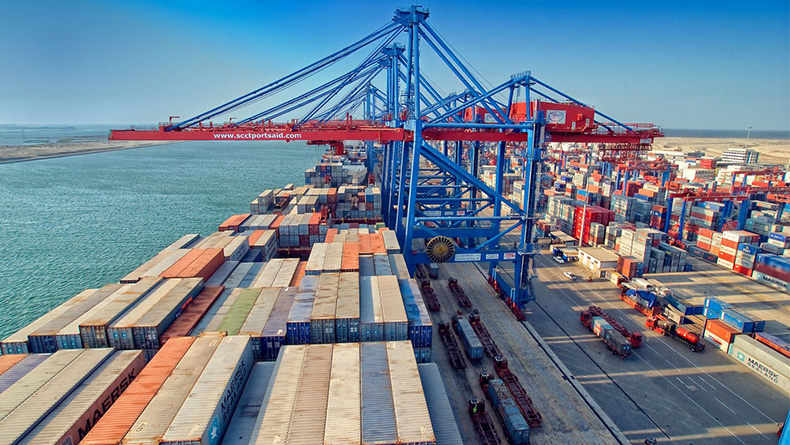To address the severe shortage of foreign currency and stabilize prices, the Egyptian government announced on Monday 4 March plans to release goods held at various ports across the country.
President Abdel Fattah al-Sisi has directed the government to prioritize the immediate release of essential commodities, including food, medicine, animal feed, and production requirements
Prime Minister Mostafa Madbouly emphasized the urgency of expediting the release process, and the Central Bank of Egypt (CBE) and relevant ministries will be coordinating efforts to ensure the swift release of the goods.
The accumulation of goods at Egyptian ports has been a pressing issue due to the foreign currency shortage, which was exacerbated by the Ukraine war in February 2022. Over the past two years, the government has successfully released goods worth billions of dollars from ports.
The first tranche of the USD 5 billion (EGP 154 billion) was received on Friday, March 1 just a week after the deal was signed, supplying necessary foreign currency into the economy.
The USD 35 billion (EGP 1 trillion) Ras El-Hekma investment deal, signed with the United Arab Emirates, represents the largest foreign direct investment in Egypt’s history.
However, soaring commodity prices and increasing fodder costs have led to tripled prices for many essential goods, making them unaffordable for many.
The Ras El-Hekma deal, which includes the development of a new tourist destination on the Mediterranean Sea coast, is expected to attract a minimum of USD 150 billion (EGP 4 trillion) of investments during the implementation phases.
The Egyptian government believes that the project will pave the way for future foreign direct investment initiatives along Egypt’s coasts and contribute to reducing the country’s budget deficit.







Comments (2)
[…] combat inflation, Egypt has taken measures such as releasing stockpiled commodities in ports, with a total value of USD 12 billion (EGP 592 […]
[…] combatir la inflación, Egipto ha tomado medidas como liberando mercancías almacenadas en los puertos, por un valor total de 12 mil millones de dólares (592 mil […]